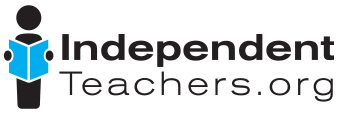PROPOSITION 104
Roughly 70 percent of Colorado voters approved Proposition 104 on the fall 2014 ballot:
Shall there be a change to the Colorado Revised Statutes requiring any meeting of a board of education, or any meeting between any representative of a school district and any representative of employees, at which a collective bargaining agreement is discussed to be open to the public?
The law helps to promote cleaner, more honest government at the school board level. It also offers a greater opportunity to expose policies that put special interest priorities ahead of students, teachers, and taxpayers. But good government and genuine reform will only happen if dedicated citizens are prepared to act.
Background Info
Thirty-nine of Colorado’s 178 school districts have been identified that formally negotiate collective bargaining agreements with one or more employee unions. This decision ultimately is up to the local school board. A number of other districts hold less formal negotiations with employee groups.
In these meetings, up to 80 percent or more of district budgets, as well as other important policies, are determined. Until now, most sessions have been held behind closed doors. A 2001 state law requires districts to post current agreements online, though a 2015 report revealed some shortcomings to union contract transparency.
What Kind of Issues?
Not only is there no Colorado law requiring or forbidding local school districts to bargain, there is no law governing what topics can or cannot be negotiated. Agreements cover employee pay scales, a topic negotiated annually. But various other policies are open to negotiation either every year or whenever the contract is set to be renewed. The following categories are covered in some or all of the state’s bargaining agreements:
- Negotiation procedures, including mediation and fact-finding
- Grievance procedures to arbitrate supervisor complaints
- Transfer and layoff procedures, often incorporating seniority-based protections
- Formal structures through which teachers can give additional policy input
- Professional evaluations, with some detail on who can evaluate and on what basis
- Additional compensation, including fringe benefits and special stipends
- Employee leave policies for a wide variety of circumstances
- Working conditions—e.g., class sizes, classroom hours, duty-free lunches
- Union privileges—e.g., monopoly bargaining status; automatic payroll deductions; access to district resources and communication systems; tax-funded union officers
- Duration of agreement, and procedures to decertify the bargaining agent
